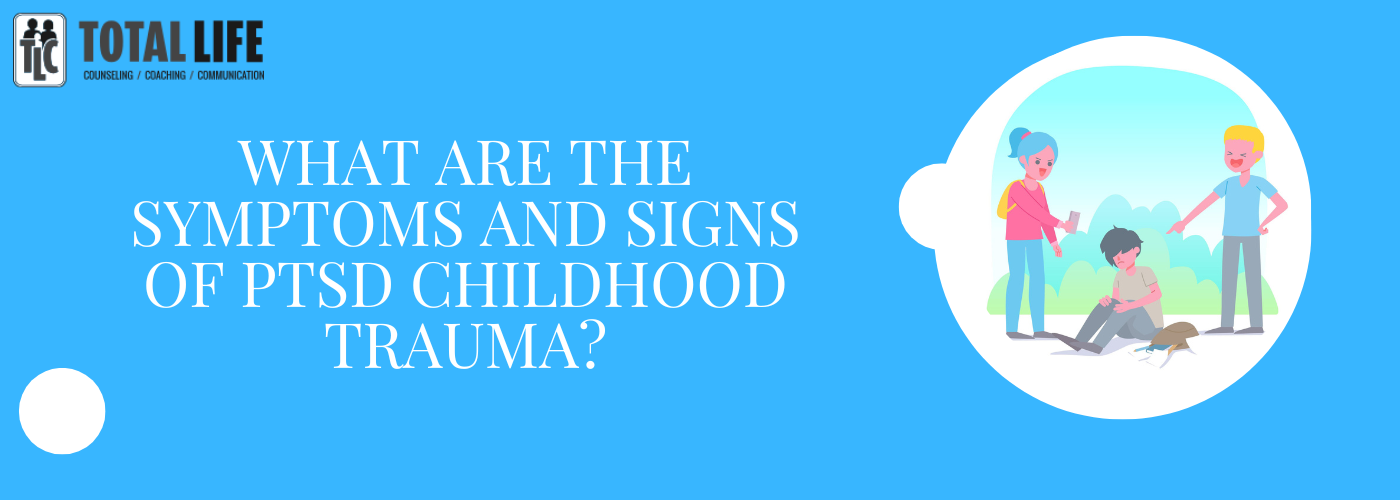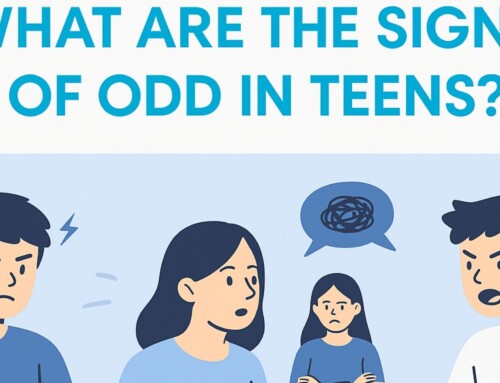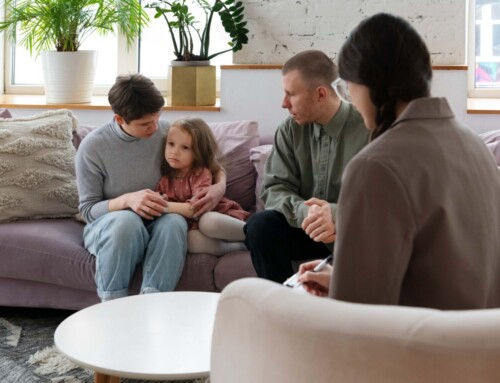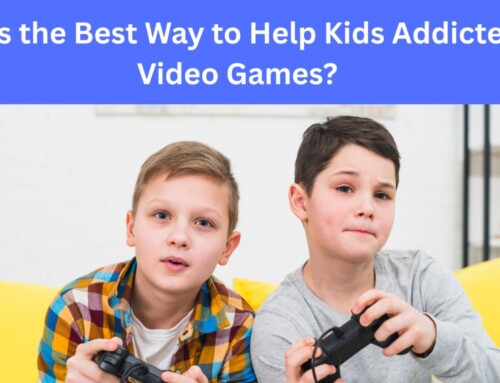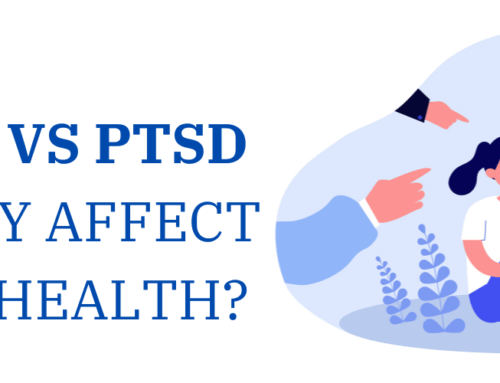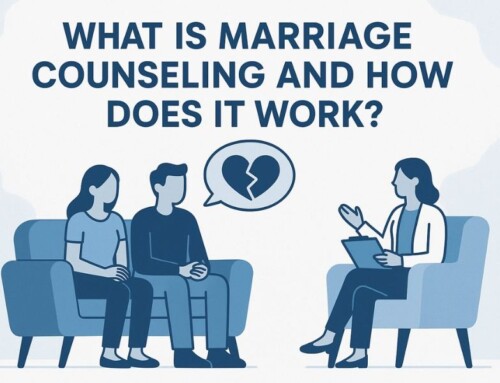What Are the Symptoms and Signs of PTSD Childhood Trauma?
TL;DR
|
|---|
Do you ever find yourself asking, “Why am I reacting like this?” – but there’s no clear answer, just a lingering sense that something isn’t quite right.
You’re not imagining it. Childhood trauma can absolutely shape the way we respond to stress, relationships, and even everyday life. And it’s more common than many people realize.
That means a large number of people struggling with anxiety, depression, or emotional regulation today are still carrying the weight of past experiences they never had the chance to process.
At Total Life Counseling, we work with many individuals who are affected by childhood trauma—often in ways they don’t immediately recognize. Even when the trauma isn’t outwardly visible, its effects can quietly disrupt the brain’s ability to manage stress, leaving people feeling on edge, disconnected, or overwhelmed well into adulthood.
In this blog, we’ll help you understand how trauma affects the brain and body, why certain patterns keep showing up, and how therapy can help you move from just surviving to living.
What Is Childhood Trauma?
Childhood Trauma is what happens when a child goes through something terrifying, painful, or confusing—and they don’t have the tools to fully understand or cope with it. It can leave a lasting impact on how they think, feel, and act, even years later, often due to early childhood trauma or traumatic experiences that shape their development.
Here’s a simpler way to think about it:
- It starts with something overwhelming—like being hurt, ignored, or seeing something violent—that makes the child feel unsafe, scared, or powerless.
- It’s not just emotional—trauma can affect the body too. Some kids might have trouble sleeping, complain about stomach aches or headaches, or seem tired all the time.
- Their behavior might change. They could become super quiet and withdrawn, act out with aggression, or seem overly jumpy and easily scared.
- School can get harder. They might struggle to focus, fall behind, or have trouble getting along with others.
- Long-term trauma can affect how the brain develops—especially the parts that help with emotions, memory, and self-control. This can lead to challenges like anxiety, depression, or PTSD later in life.
Can childhood trauma cause PTSD? All of this is the brain and body trying to protect the child from something that felt too big or too scary. But if the trauma isn’t talked about or treated, it can keep affecting them in ways they—and the adults around them—don’t always understand. Understanding that childhood trauma can cause PTSD is the first step toward offering the right kind of support.
With love, support—and sometimes a little professional help—they can bounce back, feel safe again, and learn healthy ways to handle big emotions. The earlier we notice the signs and step in, the better. If you’re wondering what PTSD is from childhood trauma, understanding the signs early can make a big difference. Total Life Counseling Tampa is here to walk that journey with you.
What Are the Different Types of Childhood Trauma?
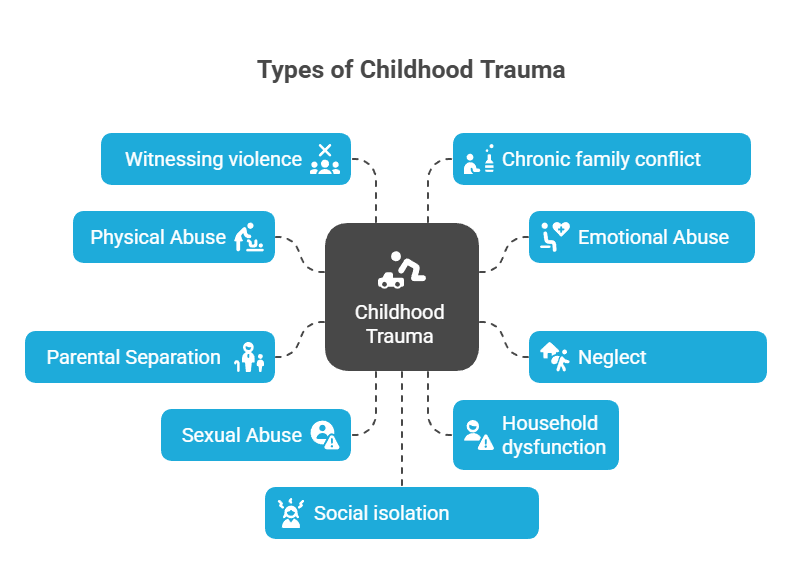
Childhood trauma doesn’t always look the same. It can come from big, obvious events—or from everyday experiences that build up over time, especially during the early years. Whether it’s physical harm or emotional hurt, trauma leaves a mark. Some types are easier to recognize, while others are more hidden but just as harmful. Understanding how to treat PTSD from childhood trauma is a crucial step toward healing, especially when the effects linger into adulthood.
Here’s a simple, easy-to-understand overview of the different types of childhood trauma.
- Physical abuse – This includes any kind of physical harm, like hitting, kicking, or shaking. It can leave both visible and invisible scars, especially when it comes from someone the child trusts.
- Emotional abuse – Constant yelling, belittling, threatening, or ignoring a child’s feelings can seriously damage their self-esteem and emotional growth.
- Neglect – When a child’s basic needs—like food, safety, love, or attention—aren’t met, it can lead to deep feelings of unworthiness or insecurity. This can be just as damaging as abuse.
- Sexual abuse – Any inappropriate sexual behavior or contact with a child is deeply traumatic and can affect how they see themselves and others for a long time.
- Household dysfunction – Living in a home with substance abuse, domestic violence, or a parent struggling with mental illness creates constant stress. Even if the child isn’t directly harmed, just witnessing this can be traumatic.
- Divorce or parental separation – When parents split up, children often feel confused, scared, or blame themselves. Depending on how it’s handled, it can become a long-term emotional burden. Seeking support like family counseling can help families navigate the transition in a healthier, more supportive way.
- Witnessing violence – Seeing someone else get hurt, whether at home, school, or in the community, can make a child feel unsafe even in places that should feel secure.
- Social isolation – Feeling left out or like they don’t belong can make children believe there’s something wrong with them. Over time, this can lead to anxiety or depression.
- Chronic family conflict – Constant arguing, tension, or emotional coldness at home can create a stressful environment that chips away at a child’s sense of stability and peace.
These types of trauma don’t just cause temporary distress—they can change how a child’s brain develops, especially areas that manage emotions, memory, and decision-making.
What Is PTSD in the Context of Childhood Trauma?
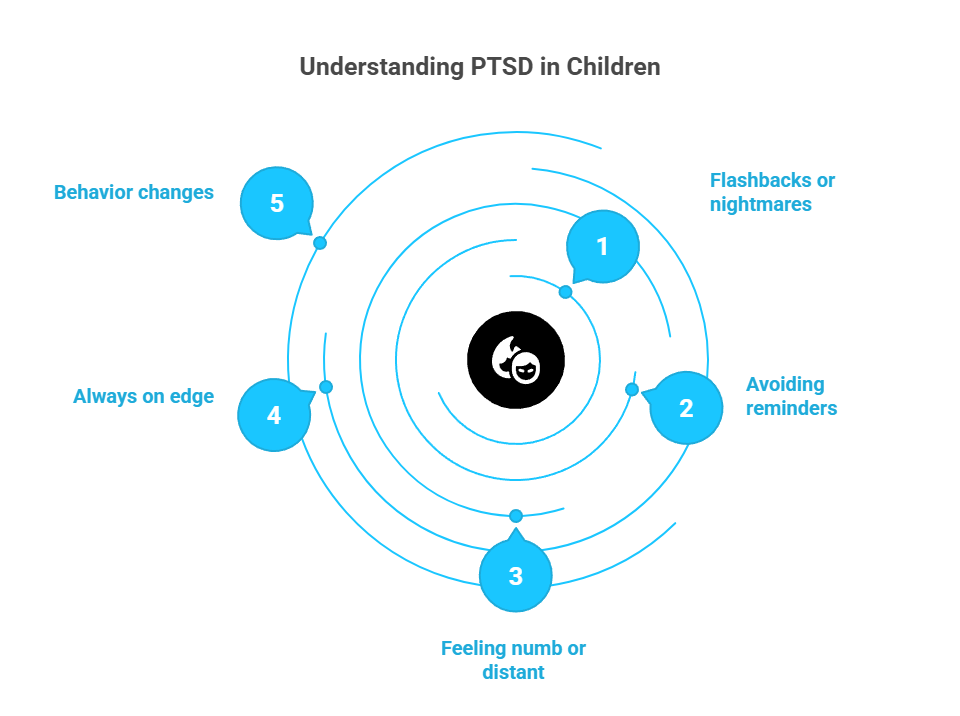
PTSD, or post-traumatic stress disorder, can happen when a child goes through something scary or harmful—like abuse, neglect, or seeing violence. You might wonder, what are the symptoms of PTSD from childhood trauma and exposure to traumatic events? Even after the event is over, their mind and body might still feel physical symptoms as if the danger is happening. It’s like their brain gets stuck in survival mode.
Here’s what PTSD can look like in children:
- Flashbacks or nightmares. They might keep reliving the traumatic memories from the event in their mind, often through scary dreams or sudden memories.
- Avoiding reminders. A child might not want to talk about what happened, or they’ll avoid certain people, places, or things that bring it all back.
- Feeling numb or distant. Some kids seem emotionally shut down. They might stop enjoying things they used to love or seem “checked out.”
- Always on edge. Loud sounds or quick movements can make them jumpy or scared. Their body stay on high alert, as if they’re expecting something bad to happen.
- Behavior changes. You might notice more anger, outbursts, trouble focusing, or pulling away from others.
PTSD in kids isn’t always easy to spot—it doesn’t always look like fear. Sometimes, it shows up as aggression, silence, or even physical complaints like stomach aches.
Research shows that about 2 in 3 children who experience abuse develop PTSD. But with early support, kids can absolutely heal. Therapy, a safe environment, and trusted adults make a huge difference.
Bottom line? PTSD is a real response to trauma—not bad behavior. Understanding what’s really going on is the first step toward helping a child feel safe again.
What Is the Connection Between Childhood Trauma and PTSD?
Childhood trauma – such as abuse, neglect, or witnessing violence—can profoundly affect a person’s thoughts, emotions, and behaviors well into adulthood. While it may result in PTSD (Post-Traumatic Stress Disorder), these brain changes due to trauma, particularly in the prefrontal cortex, can also lead to issues like anxiety, depression, and emotional regulation challenges.l
Wondering how to know if you have PTSD from childhood trauma? Recognize lasting emotional struggles and seek professional support to understand. The table below shows key signs and differences to help clarify your experience.
|
Childhood Trauma |
PTSD |
|---|---|
|
Distressing or harmful experience in early life |
A mental disorder that can develop after trauma, including borderline personality disorder |
|
Changes how the brain and emotions develop |
Involves flashbacks, fear, nightmares, and avoidance |
|
Doesn’t always lead to PTSD |
Not everyone with trauma gets PTSD |
|
Needs early emotional support and care |
Requires targeted mental health treatment |
What Are the Treatment and Recovery Options for Childhood Trauma-Related PTSD?
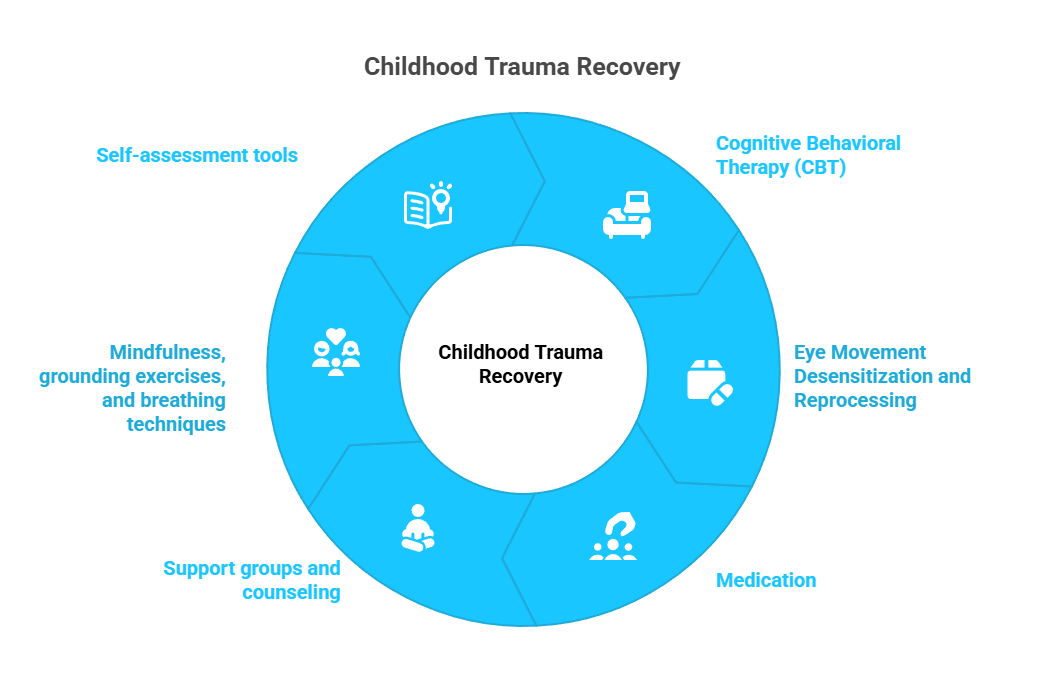
How to treat PTSD from childhood trauma? Recovering from childhood trauma-related PTSD takes time, but there are proven treatments that can really help. Healing doesn’t happen overnight—but with the right tools and support, it’s completely possible to feel better and more in control.
Here’s a clear and practical look at what treatment and recovery from trauma can actually involve.
- Trauma-focused Cognitive Behavioral Therapy (CBT) helps you work through negative thoughts and emotions linked to trauma. It teaches practical ways to reframe your thinking, manage triggers, and slowly face painful memories without feeling overwhelmed.
- Eye Movement Desensitization and Reprocessing (EMDR) is a therapy where you focus on specific memories while doing guided eye movements. It sounds unusual, but it actually helps your brain “reprocess” trauma and reduces how much it bothers you over time.
- Medication can be useful for managing PTSD symptoms like anxiety, depression, or sleep issues. Antidepressants or anti-anxiety meds can help balance your mood and give your mind a break while you work on healing. Before medication our counselors suggest supplements to discuss with your doctor that can be a great alternative to medication!
- Support groups and counseling offer a safe space to talk about what you’ve been through. Knowing others understand what you’re feeling can make a big difference in feeling less alone.
- Mindfulness, grounding exercises, and breathing techniques can help calm your body and mind when stress hits. Even small daily habits can support your recovery.
- Self-assessment tools like trauma quizzes can help you recognize if you’re dealing with PTSD symptoms. They’re a helpful first step toward getting support.
Everyone’s path to healing looks different. But with the right care, support, and patience, moving forward from childhood trauma is not just possible—it’s powerful. If you’re facing something like this, know you’re not alone. Total Life Counseling is here to help you take the next step.
Heal from Childhood Trauma & PTSD with Total Life Counseling Expert Support
Still carrying the weight of painful childhood experiences? Maybe memories from the past won’t stay in the past—or you’re constantly anxious, disconnected, or triggered by things you can’t explain. PTSD from childhood trauma is real, and you’re not alone in this. Total Life Counseling is here to support you with care that actually makes a difference.
Our trauma-informed, online therapy is flexible and designed to meet you where you are—emotionally and literally. With guidance from Gemima McMahon, MA, LMHC, you’ll receive evidence-based care tailored to the unique impact of early trauma. We help you understand what PTSD from childhood looks like and how it affects your present, while giving you tools to finally move forward.
At TLC, healing isn’t rushed. It’s supported—step by step, with compassion, clarity, and the kind of insight that helps you feel safe in your own mind and body again.
Book your free 15-minute consultation today—because what happened in childhood doesn’t have to define your future.
Conclusion
Addressing the impact of childhood trauma and its connection to PTSD is crucial for fostering understanding and compassion. The journey towards recovery, while challenging, is supported by various treatment options, including cognitive behavioural therapy (CBT) and EMDR. Recognizing the signs and symptoms enables individuals, caregivers, and mental health professionals to tailor interventions that promote healing. With the right support and resources, those affected can navigate their experiences and work towards emotional resilience and a healthier future.
Frequently Asked Questions
Can PTSD from childhood trauma be cured or outgrown over time?
While PTSD from unresolved childhood trauma may not be “cured” in a traditional sense, many individuals can experience significant improvement through therapy and support. Some may learn coping mechanisms that help them manage symptoms effectively, making it possible to lead fulfilling lives even if experiencing lasting effects.
What are the long-term effects if childhood trauma-related PTSD goes untreated?
Untreated childhood trauma-related PTSD can lead to persistent emotional and psychological issues, including anxiety, depression, substance abuse, and difficulties in relationships. These unresolved issues can contribute to significant mental health problems. Long-term effects may also manifest in physical health problems and challenges in daily functioning or maintaining employment. Seeking timely intervention is crucial.
How can family members support children or adults with trauma-related PTSD?
Family members can support those with trauma-related PTSD by creating a safe environment, encouraging open communication, and practicing patience. Engaging in professional therapy together and educating themselves about PTSD can enhance understanding and foster a strong support system for healing.
What role does early intervention play in treating childhood trauma and PTSD?
Early intervention is crucial in treating childhood trauma and PTSD as it can mitigate long-term effects, reduce symptoms, and promote healthier coping mechanisms. Timely support helps children process their experiences effectively, leading to improved mental health outcomes and mental health services that foster resilience in later life.
Share This Story, Choose Your Platform!
Total Life Counseling Center consists of Licensed Counselors, masters level therapists, Español counselors, Licensed Mental Health Counselors, business coaches, and image enhancement coaches who provide counseling for emotional, mental, physical and spiritual care including marriage, individual, family, substance abuse and more. TLC’s family, trauma and marriage experts have been interviewed on National and Local TV/Radio over 200 times for their expert advice on Fox News, OWN, WETV, ABC’s Medical Minute and more. Our skilled counselors are relational, approachable and specialists providing therapy services in the Central Florida area including: Orlando, Winter Park, MetroWest, Windermere, Dr. Phillips, East Orlando, Lake Mary, and Clermont, Boca Raton Florida, and Dallas, TX.

